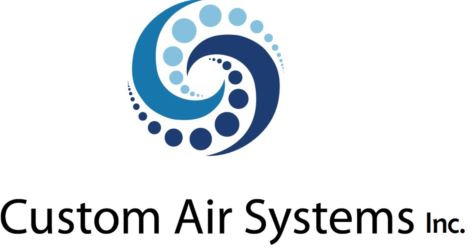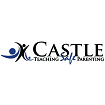
We spend a good majority of our time inside. As a matter of fact, the Environmental Protection Agency (EPA) has determined being within a building accounts for 90% of our schedule. Having said that, the EPA also has found your indoor air can be three to five times dirtier than outdoors.
That’s because our residences are firmly sealed to boost energy efficiency. While this is great for your energy bills, it’s not so great if you’re a part of the 40% of the population with respiratory allergies.
When outdoor ventilation is restricted, pollutants such as dust and volatile organic compounds (VOCs) can get captured. Consequently, these pollutants can irritate your allergies.
You can enhance your indoor air quality with fresh air and usual cleaning and vacuuming. But if you’re still struggling with symptoms when you’re at home, an air purifier might be able to help.
While it can’t get rid of pollutants that have landed on your furniture or carpeting, it may help purify the air traveling throughout your house.
And air purification has also been scientifically confirmed to help lower some allergic symptoms, according to the American College of Allergy, Asthma and Immunology. It may also be helpful if you or someone in your household has a lung condition, such as emphysema or COPD.
There are two kinds, a portable air purifier or a whole-home air purifier. We’ll discuss the differences so you can figure out what’s appropriate for your residence.
Whole-House Air Purifier vs. Portable Air Purifiers
A portable air purifier is for one room. A whole-house air purifier accompanies your home comfort equipment to treat your complete home. Some types can clean on their own when your home comfort unit isn’t on.
What’s the Best Air Purifier for Allergies?
Look for an option with a High Efficiency Particulate Air (HEPA) filter. HEPA filters are installed in hospitals and offer the most comprehensive filtration you can get, as they trap 99.97% of particles in the air.
HEPA filters are even more beneficial when installed with an ultraviolet (UV) germicidal light. This powerful blend can destroy dust, dander, pollen and mold, all of which are common allergens. For the best in air purification, evaluate a unit that also has a carbon-based filter to decrease household odors.
Avoid getting an air purifier that makes ozone, which is the top ingredient in smog. The EPA warns ozone might irritate respiratory troubles, even when discharged at small concentrations.
The Allergy and Asthma Foundation of America has compiled a listing of questions to think over when getting an air purifier.
- What can this purifier take out from the air? What doesn’t it remove?
- What’s its clean air delivery rate? (A better amount means air will be freshened more rapidly.)
- How regularly does the filter or UV bulb need to be changed]? Can I do that by myself?
- How much do replacement filters or bulbs cost?
How to Decrease Seasonal Allergy Symptoms
Want to have the {top|most excellent|best] results from your new air purification system? The Mayo Clinic advises taking other procedures to limit your exposure to things that can trigger seasonal allergies.
- Stay inside and keep windows and doors shut when pollen counts are heightened.
- Have other family members cut the lawn or pull weeds, since this work can worsen symptoms. If you have to do these jobs alone, you may want to consider using a pollen mask. You should also bathe without delay and put on new clothes once you’re done.
- Avoid stringing up laundry outdoors.
- Use your air conditioner while at your house or while driving. Consider using a high efficiency air filter in your home’s heating and cooling system.
- Equalize your home’s humidity percentage with a whole-house dehumidifier.
- Hardwood, tile or linoleum are the best flooring materials for lowering indoor allergens. If your residence has carpet, install a HEPA filter on your vacuum cleaner.
Let Our Professionals Handle Your Indoor Air Quality Needs
Want to move forward with installing a whole-house air purifier? Give our professionals a call at 772-247-2283 or contact us online to get an appointment. We’ll help you locate the ideal equipment for your family and budget.




